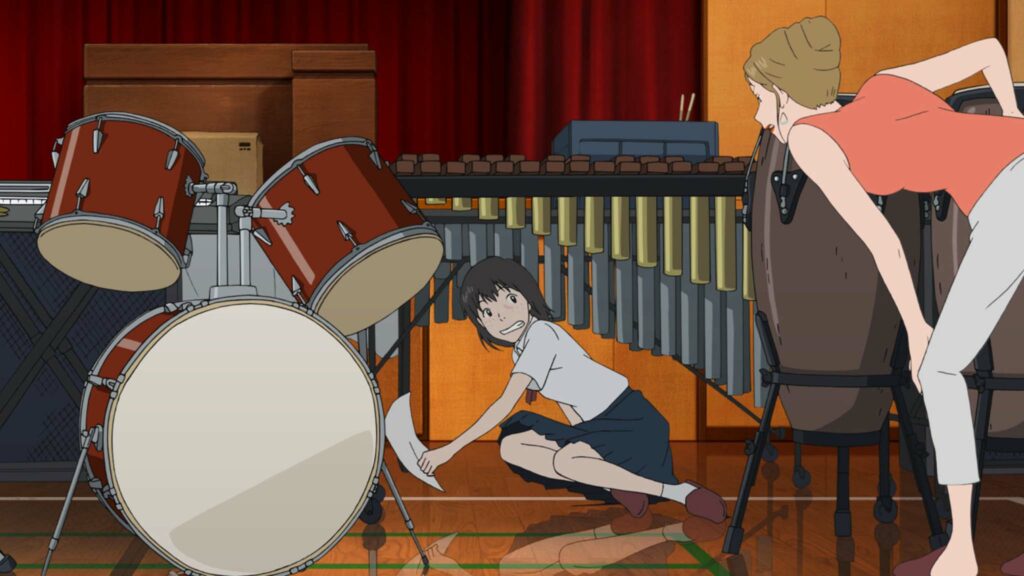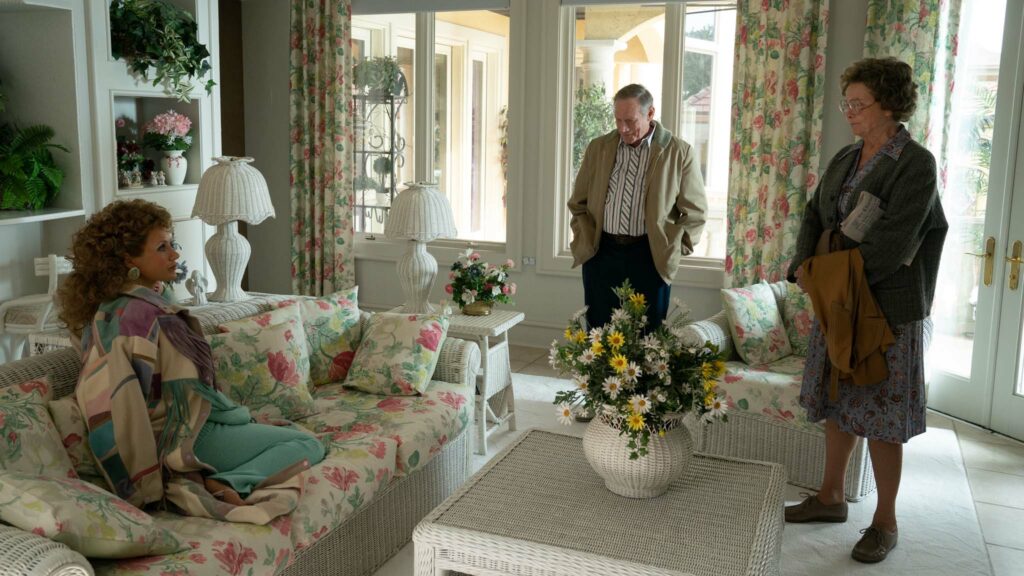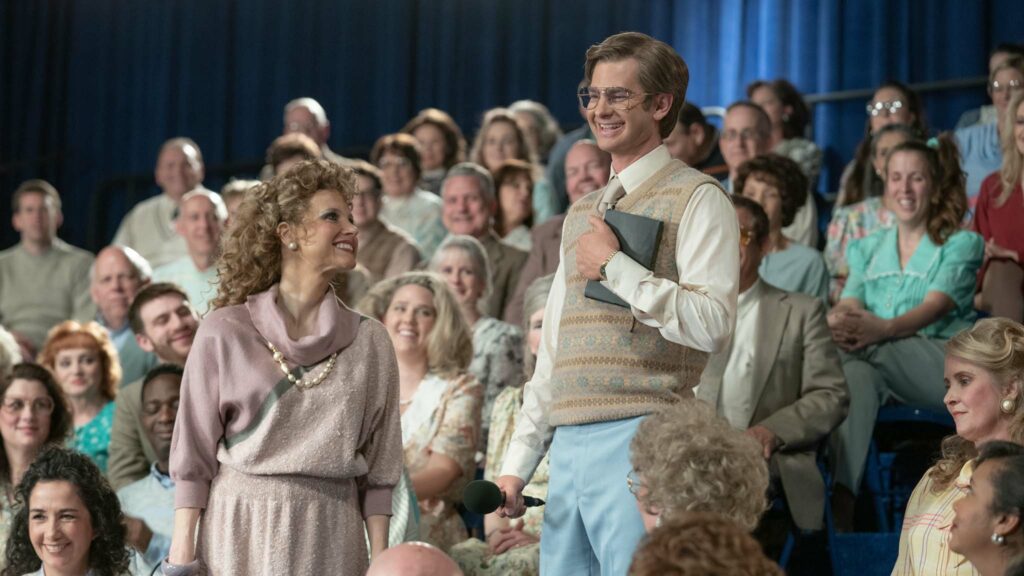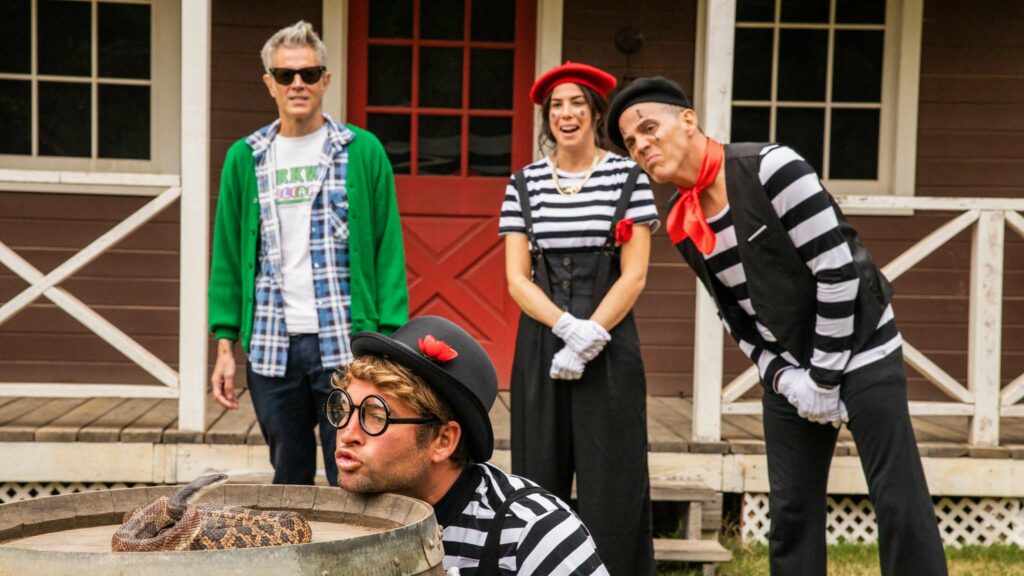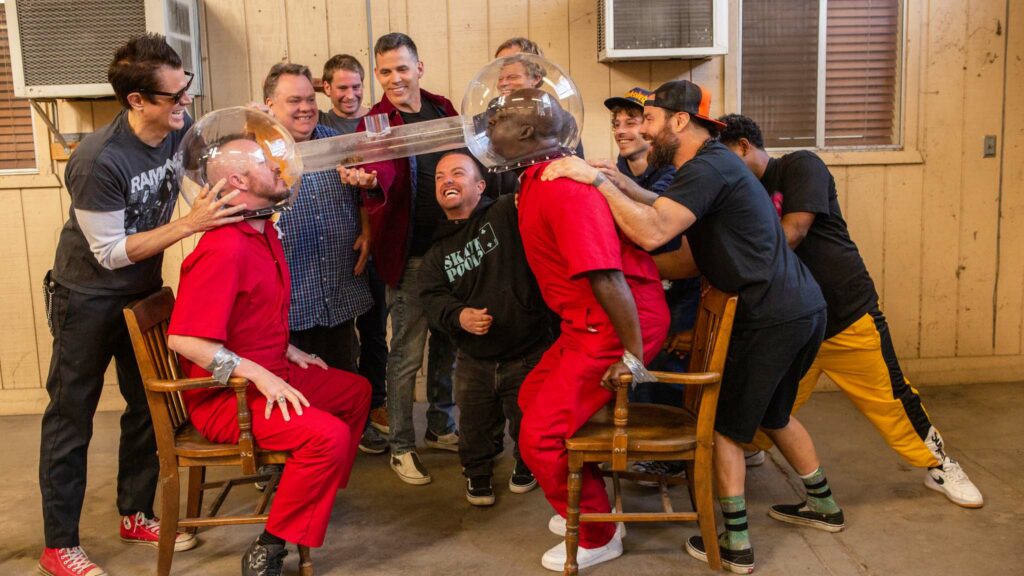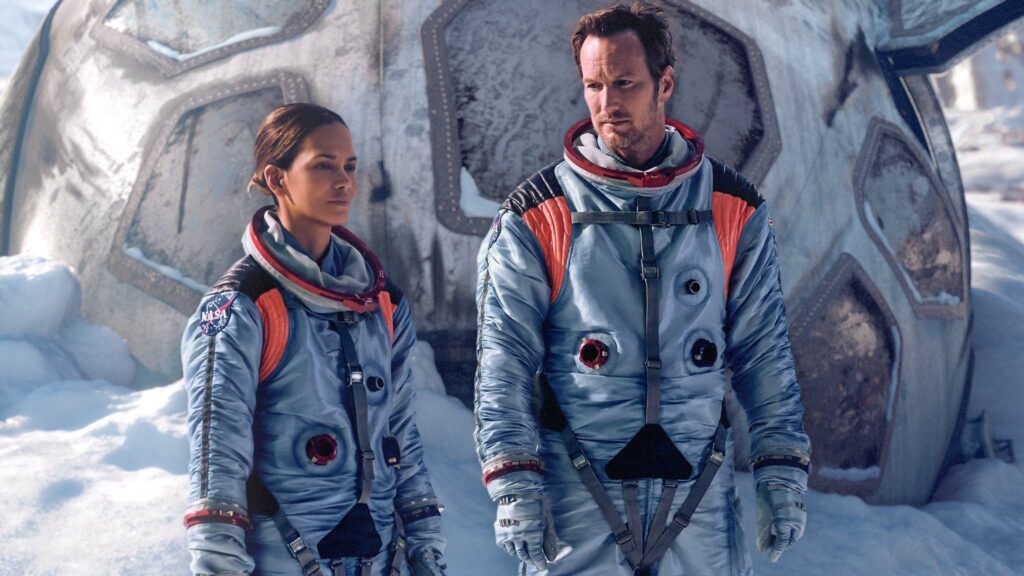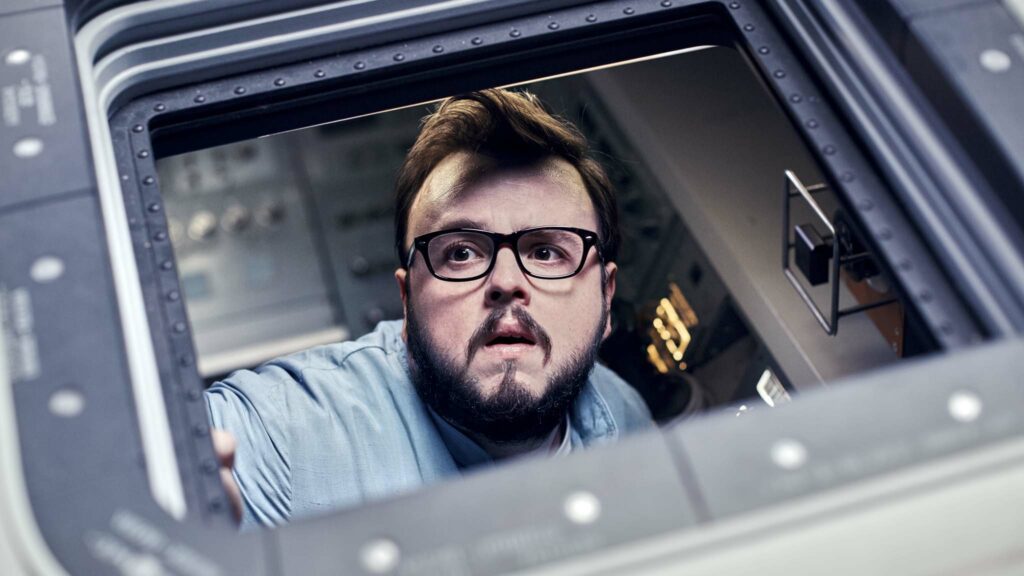Animation
Belle (12A)
Review: A tale as old as time is turbo-charged for a quick fix TikTok generation in Japanese writer-director Mamoru Hosoda’s lushly animated fantasy. Set in an immersive digital wonderland called U, where every tumble down the rabbit hole promises reinvention behind a mask of anonymity (“You can’t start over in reality. You can start over in U!”), Belle grafts eye-popping visuals and unexpectedly dark subject matter onto the Beauty And The Beast fairy tale, replete with a ballroom waltz that echoes the Oscar-winning 1991 Disney version.
Unlike some of his peers, Hosoda doesn’t view the internet with dystopian doom. He sees his world of ones and zeroes as a limitless playground where insecurities can be soothed through meaningful real-time interactions. Admittedly, he engineers one sequence where trolls swarm to tear down the heroine but another character coolly observes that no-one scaled the dizzy heights of superstardom on compliments alone.
Hosoda’s script reserves the heaviest emotional blows for a structurally haphazard final act that ricochets between real and digitised realms to explore child abuse at close quarters. Thankfully, Belle dodges a sinkhole in the storytelling to achieve a deeply satisfying moment of catharsis reminiscent of the filmmaker’s earlier work.
Painfully insecure 17-year-old high school student Suzu (voiced by Kaho Nakamura) has never recovered from seeing her mother (Sumi Shimamoto) drown while attempting to save a stricken child from a flooding river. The teenager retreats emotionally from her grief-stricken father (Koji Yakusho) and shies away from a blush-inducing crush on childhood friend Shinobu (Ryo Narita), who adopts the role of her surrogate big brother.
Gregarious, tech-savvy classmate Hiroka (Lilas Ikuta) invites Suzu to join a virtual world called U where a recent photograph and biometric data generates a colourful avatar. Suzu’s alter ego is a self-confident, candyfloss pink-haired singer called Belle who becomes a sensation with her extravagantly staged performances on the back of a humpback whale encrusted with amplifiers.
As Belle’s popularity soars, denizens of U speculate about the identity of the real person behind the mask, which terrifies Suzu. “Nobody would guess that Belle is a mousy country bumpkin like you,” snorts Hiroka. Back in U, Belle is drawn to an explosively violent outcast dubbed The Dragon (Takeru Satoh), forging a tender bond that enrages the realm’s threatening chief protector Justin (Toshiyuki Morikawa).
Belle would benefit from sharper, more economical storytelling – the middle section noticeably sags – but visuals are gorgeous and deserve to be savoured on the biggest screen as the camera explores the nooks and crannies of U. Hosoda’s film is released in two versions: Japanese with subtitles and English language dubbing. As a purist, I always recommend the former because subtleties in original vocal performances are sometimes lost in translation.
Find Belle in the cinemas
Drama
The Eyes Of Tammy Faye (12A)
Review: Based on the award-winning 2000 documentary of the same title, The Eyes Of Tammy Faye dramatises the rise and fall of “the Ken and Barbie of televangelists” through the heavily mascaraed peepers of its easily duped heroine. Director Michael Showalter and scriptwriter Abe Sylvia offer an exceedingly charitable portrayal of the relentlessly upbeat woman at the centre of an embezzlement scandal, which sank the evangelical Christian PTL Television Network and originally sentenced Tammy’s husband Jim to 45 years in prison on fraud and conspiracy charges.
“What you see is all there is of me,” chirrups the luminous Jessica Chastain as Tammy in an early scene. It’s a barnstorming, all-guns-blazing central performance that fixates on the wife’s overly trusting nature without making cruel fun at the altar of her campness and theatricality. Chastain doesn’t hold back, whether she is enthusiastically spreading the word of the Lord through Tammy’s handmade Susie Moppet doll, building a successful music recording career or feeding her one addiction – a diet soft drink – through a lipstick-smudged straw before she trades carbonation for prescription medication. Oscar nominations have been snagged for far less.
Conversely, Andrew Garfield feels underpowered as the architect of the couple’s downfall. Depicted as a materialistic social climber, who gaslights and manipulates in pursuit of the gaudy trappings of fame, it’s tough to believe that Tammy keeps on her blinkers for so long, especially when her mother repeatedly warns about lining pockets with scripture: “Serving God don’t feel like it should be a money-making opportunity.”
Tammy Faye Grover (Chastain) is raised in a blended family of eight children in International Falls, Minnesota by a devout mother (Cherry Jones), who hides her eldest daughter from the congregation to avoid public reminders of her failed first marriage and divorce. In 1960 at North Central Bible College, Tammy meets Jim Bakker (Garfield) and they forego studies to marry and establish a travelling ministry, which leads to a big break on the Christian Broadcasting Network (CBN) under Reverend Pat Robertson (Gabriel Olds).
Jim’s ambition sows the seeds of The PTL Club (Praise The Lord) and he openly woos conservative pastor Jerry Falwell (Vincent D’Onofrio). However, Falwell’s lip-curling rejection of homosexuality troubles Tammy – “We’re all just people made out of the same old dirt and God didn’t make any junk,” she argues – and she defiantly interviews Aids patient Steve Pieters (Randy Havens) on the TV network.
The Eyes Of Tammy Faye is a sparkling showcase for Chastain’s multi-layered metamorphosis. She comes closest to divinity but the rest of Showalter’s sermon is far from heaven, too conventional and narrow in its critical judgment to teach us anything new about the showbusiness of televised ministry.
Find The Eyes Of Tammy Faye in the cinemas
Comedy
Jackass Forever (18)
Review: Imitation of the stunts and pranks in Jackass Forever would be the sincerest form of stupidity. Twenty years on from the original ego-bruising, bone-crushing hurrah of Johnny Knoxville and the gang, the fourth madcap compilation of gross-out pratfalls and japes “performed by professionals” is prefaced by an obligatory legal disclaimer to not replicate any of the lunacy you see on screen. Sadly, the MTV series Jackass and subsequent films have demonstrated that, in extreme cases, curiosity kills the copycats.
It has been almost a decade since Knoxville ran amok as disgraceful octogenarian Irving Zisman in Jackass Presents: Bad Grandpa. He reprises his impish alter ego for an ill-fated furniture shopping expedition with hidden cameras that promises more delight than it ultimately delivers. Tellingly, by the end of Jackass Forever, directed by series regular Jeff Tremaine, the 50-year-old lead star’s hair goes from brunette to silver. He’s also seriously injured reprising a close encounter with a charging bull, incurring a broken wrist, broken rib and a weekend stay in hospital with concussion.
Original cast members Steve-O, Preston Lacy, Chris Pontius, Jason “Wee Man” Acuna, Dave England and Ehren McGhehey gamely revisit updated challenges like the bungee wedgie and a puerile attempt to ignite freshly expelled methane underwater. They also endure new humiliations with a high degree of certainty that live animals could come into play at some point. “I’m a vegetarian!” whimpers one of the crew after he is unceremoniously drenched in gallons of viscous porcine fluid.
A new generation excitedly grasps the Jackass nettle including former rapper Jasper Dolphin and his father Darkshark, actor Eric Manaka, stuntman Zach Holmes, professional surfer Sean “Poopies” McInerney and stand-up comedian Rachel Wolfson. The latter calmly redresses the series’ glaring gender imbalance in the aptly named Scorpion Botox with a live arachnid plunging its stinger into her bottom lip. When the creature tumbles off her face and on to her chest, she visibly panics and co-star Pontius hesitates to intervene. “I can’t take if off your boob unless you give me permission,” he respectfully blathers.
Filming in a time of Covid sparks unexpected jeopardy. Cameraman Lance Bangs and his strong gag reflex have made recurring cameos and when he begins to retch during a seemingly innocuous stunt, his body’s natural response leaves him with more than egg over his securely masked face.
Like previous instalments, Jackass Forever is hit and miss, with moments of howling hilarity (an opening ode to Godzilla is glorious) offset by elaborate skits that fall painfully flat – the emphasis is on eye-watering pain for gung-ho participants. With a nimble running time of 96 minutes, the endurance for us though is pleasantly tolerable.
Find Jackass Forever in the cinemas
Action
Moonfall (12A)
Review: On July 20 1969, Neil Armstrong and Buzz Aldrin touched down on the surface of the moon in the Eagle. That one giant leap for mankind and an apparent two-minute lapse in communication between mission control and Apollo 11 lights the touch paper on a ludicrously overblown battle for mankind’s survival masterminded by Roland Emmerich. The German writer-director of Independence Day, The Day After Tomorrow and 2012 recycles space debris jettisoned from his earlier films in a hysterically hare-brained caper co-written by Emmerich, Harald Kloser and Spenser Cohen.
The trio deliver a failing father determined to redeem himself in the eyes of a child and his despairing ex-wife, a cataclysmic meteorological chain reaction that unleashes tidal waves through gleaming skyscrapers, a breakneck escape on four wheels over fragments of a rapidly disintegrating North American continent, a conspiracy theorist who speaks the fantastical truth, and a melding of human and otherworldly minds to conveniently distil the plot. When Patrick Wilson’s woefully underwritten Nasa astronaut stares straight-faced into the camera and growls “This is a whole other level of insane”, it’s a rare moment of clarity for Moonfall.
Repetitive metallic clangs on the soundtrack can be attributed to leaden dialogue tumbling from actors’ mouths. One particular highlight is Wilson’s spaceman refusing to blast off on a daredevil rescue mission because he’s experiencing domestic issues and Oscar-winner Halle Berry snarkily observing that chunks of the moon falling on planet Earth might be a more pressing concern. Vicarious thrills are second-hand and the special effects-laden finale is anti-climactic and cloying.
A mysterious and deadly force knocks the moon from its orbit and sends the Earth’s only natural satellite on a collision course with our helpless planet. Society fractures at frightening speed. “Looting has become a favourite pastime in the United Kingdom!” cheerfully announces one TV news channel.
Former astronauts Jocinda Fowler (Berry) and Brian Harper (Wilson), who served together on an ill-fated 2011 satellite repair mission, align with chatterbox conspiracy theorist KC Houseman (John Bradley), who believes he knows what lies behind the doomsday scenario. As the clock ticks down to our annihilation, Jocinda dispatches her young son Jimmy (Zayn Maloney) and his nanny Michelle (Kelly Yu) to a battle bunker to ride out the storm with her high-ranking military ex-husband (Eme Ikwuakor).
Moonfall does what it says on the dented, rusty tin, unleashing gravity-defying carnage on a grand scale. Two-dimensional characters perish at regular intervals to give the impression of heightened stakes but the only potential sacrifice likely to elicit tears is a house cat named Fuzz Aldrin. Berry and Wilson go through the motions while Bradley ramps up the wide-eyed lunacy in pursuit of comic relief. Emmerich’s latest loopy venture is one giant stumble for cinemakind.
Find Moonfall in the cinemas



